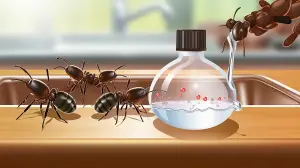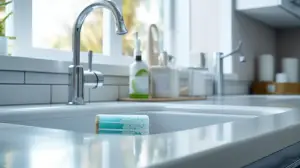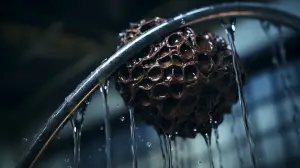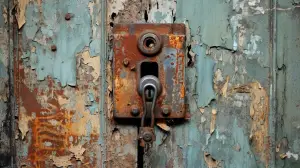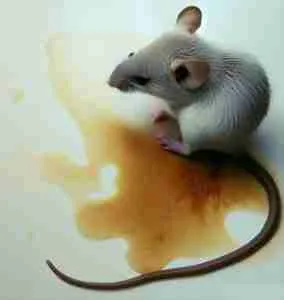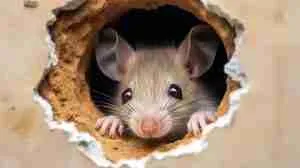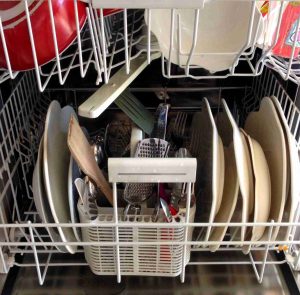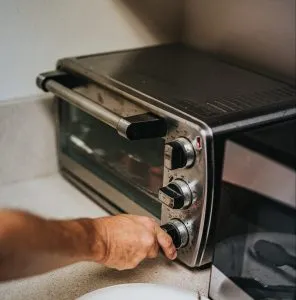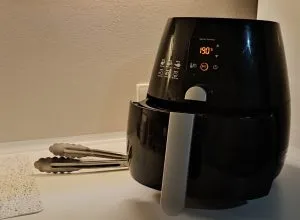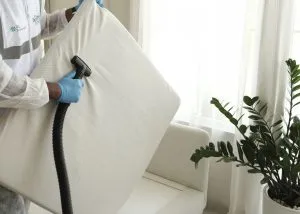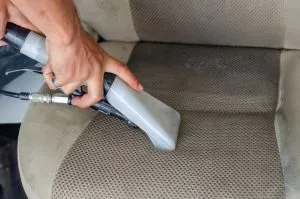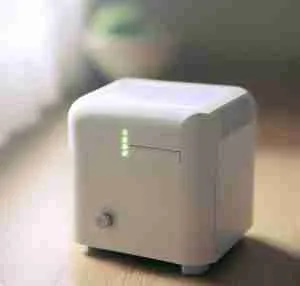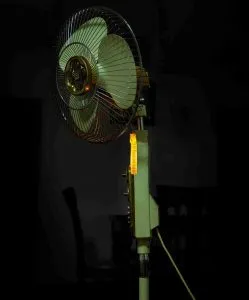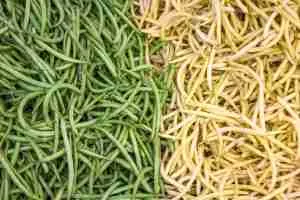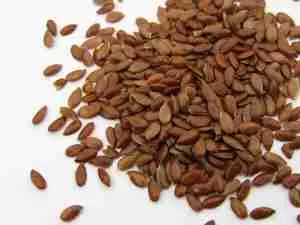If your house smells like skunk, you’re familiar with the notorious pungent and hard-to-remove odor they produce. If you’ve ever had the misfortune of a skunk spraying near your home, you know how challenging it can be to eliminate the smell. This guide will provide you with a comprehensive understanding of skunk odor and offer actionable steps to remove it from your home.
Contents
ToggleKey Takeaways:
- Skunks release a defensive spray containing sulfur compounds.
- Acting swiftly post-skunk incidents is crucial.
- Natural remedies like vinegar and baking soda can be effective.
- Persistent odors may require advanced cleaning techniques.
- Prevention is key to avoiding future skunk incidents.
Understanding the Pungent Skunk Smell
The Biology Behind Skunk’s Defensive Spray
These pesky invaders possess specialized glands near their tail that produce a bad smell in the form of a foul-smelling liquid. This liquid is a mixture of sulfur-containing chemicals called thiols. When threatened, skunks release this liquid as a defensive mechanism against predators. The strong odor serves to deter potential threats and is incredibly effective.
Why Do Skunks Stink?
The primary reason areas smell like skunk is due to the thiols present in the scoundrel’s spray. Thiols are organic compounds that contain sulfur, which is responsible for the characteristic skunk smell. This odor is so potent that it can be detected even at very low concentrations. Curious about other persistent odors? Check out why your fridge might still smell bad even after cleaning.
Immediate Actions to Get Rid of Skunk Incident

The Importance of Acting Swiftly
Time is of the essence when dealing with any odor, especially when trying to get skunk smell out. The longer it lingers, the harder it becomes to remove. It’s essential to act quickly to prevent the odor from permeating fabrics, carpets, and other porous materials in your home.
Initial Steps to Mitigate the Smell
- Open Windows and Doors: Increase ventilation to help dissipate the odor.
- Isolate Affected Areas: If a specific room or area is affected, close it off to prevent the smell from spreading.
- Remove Contaminated Items: If a skunk has sprayed items directly, they should be taken outside..
Natural Home Remedies for Skunk Odor Removal
The Power of White and Apple Cider Vinegar
Vinegar is a versatile household item and is a popular way to get rid of skunk smell. Both white and apple cider vinegar work by breaking down the thiols in this stinky spray to neutralize the odor. But why does vinegar smell bad to some? It’s all about the acetic acid content. To use, mix equal parts water and vinegar and spray the solution on affected areas. Let it sit for a few minutes, then wipe clean.
Baking Soda and Hydrogen Peroxide Mixture
A mixture of baking soda, hydrogen peroxide, and a few drops of dish soap can be a potent solution against the skunk smell. This mixture works by oxidizing the thiols, helping to neutralize the skunk odor effectively. However, it’s essential to test this solution on a small area first, as it may bleach certain fabrics.
Benefits of Increased Airflow and Ventilation
It’s important to get air moving and increase airflow to help dissipate the skunk smell faster. Using fans, opening windows, and turning on exhaust fans can aid this process. Additionally, air purifiers with activated carbon filters can help capture the odor particles.
Advanced Cleaning Techniques for Persistent Odors
Steam Cleaning for Fabrics, Rugs, and Carpets
Given that skunk smell can cling stubbornly, for odors that have settled into fabrics, steam cleaning can be an effective solution. The heat from the steam helps break down the scent molecules, while the cleaning solution balances the smell. For other cleaning challenges, learn how to clean drywall dust effectively.
Using Commercial Skunk Odor Removers
There are several commercial products available designed specifically for scoundrel scent removal. These products often contain enzymes that break down the thiols in skunk spray, effectively compensating the smell.
Washing Fabrics with Specialized Solutions
For clothes or fabrics directly sprayed by a scoundrel, it’s essential to wash them separately. Using a mixture of vinegar or baking soda in the wash can help neutralize the odor. Additionally, there are specialized laundry detergents available as we have mentioned above
Addressing Hard Surfaces and Furniture
For hard surfaces like floors, walls, and furniture, a mixture of water and vinegar or a commercial smell remover can be used. Scrubbing the surfaces thoroughly and allowing them to air dry is essential.
Freshening the Air and Preventing Future Incidents

The Role of Scented Candles and Air Deodorizers
Using scented candles and air deodorizers can help mask and offset the lingering scoundrel aroma. Opt for fragrances like lavender, eucalyptus, or citrus, which are known for their refreshing and overpowering scents. However, remember that these are temporary solutions and should be used in conjunction with other removal methods for best results.
Changing Furnace Filters for Cleaner Air
Your home’s HVAC system can circulate the smell throughout the house. Changing the furnace filters can help trap the scent particles and prevent them from spreading. It’s advisable to replace the filters more frequently if a skunk incident has occurred.
Setting Up Bowls of Vinegar as Odor Absorbers
Placing bowls of vinegar in affected rooms, or strategically placing them around the house, can help absorb the skunk smell. The acidic nature of vinegar balances the alkaline thiols in the skunk spray. Over time, even though there might be a mild smell of vinegar, it will evaporate, taking the skunk smell with it.
Preventive Measures to Keep Skunks at Bay
To avoid making your home a welcoming home for skunks in the future, consider the following preventive measures:
- Secure trash cans with tight-fitting lids.
- Install motion-activated lights around your property.
- Use repellents designed to deter scoundrels.
- Seal any potential entry points to your home.
Special Considerations: Pets, Clothes, and Yards
De-skunking Your Furry Friends
If your dog or cat has been sprayed by a skunk, it’s essential to act quickly. Use a mixture of hydrogen peroxide, baking soda, and dish soap to neutralize the smell. Ensure you avoid the eyes and rinse thoroughly after application. Repeat the process if necessary.
Treating Clothes That Have Been Exposed to Skunk Spray
Clothes exposed to that nasty spray can have the scent lingering for a long time. Wash them separately using a mixture of regular laundry detergent and baking soda. Air drying is recommended, as heat can intensify the smell.
Addressing Skunk Smell in Your House
Most of wild animals are often attracted to yards due to the availability of food and shelter. Ensure you:
- Remove potential food sources like pet food and fallen fruits.
- Seal off potential hiding spots like sheds and decks.
- Use repellents or motion-activated sprinklers to deter these animals.
Professional Help vs. DIY: Making the Right Choice
When to Call in the Experts
While many DIY solutions can effectively obtain skunk smell, there are instances when professional help is necessary. If the smell persists after multiple treatments or if it has permeated large areas of your home, it might be time to call in the experts.
Cost Considerations and Effectiveness
Professional skunk scent removal can be costly, but it’s often more effective than DIY methods, especially for severe cases. Before hiring a professional, get multiple quotes and check reviews to ensure you’re making an informed decision.
Conclusion
Dealing with skunk odor in your home can be a daunting experience, but with the right knowledge and tools at your disposal, it’s a challenge that can be overcome. From understanding the biology behind the pungent smell to employing both natural remedies and advanced cleaning techniques, there are multiple avenues to restore freshness to your living space. And if you’re dealing with other household challenges, like a house that smells like gas but has no leak, there are solutions for that too.
Remember, prevention is always better than cure. By taking proactive measures to deter skunks and being prepared with effective solutions, you can ensure that your home remains a pleasant and skunk-odor-free sanctuary.
Whether you choose DIY methods or seek professional assistance, the key is to act swiftly and methodically to tackle the odor head-on.
FAQs
Why is the skunk scent so hard to remove?
The thiols in skunk spray are sulfur-based compounds, making the smell extremely pungent and hard to neutralize.
Can tomato juice get rid of the skunk odor?
Contrary to popular belief, tomato juice is not effective in getting rid of the skunk smell. It merely masks the smell temporarily.
How long does skunk odor last?
If untreated, skunk smell can last for weeks or even months. However, with proper treatment, the smell can be significantly reduced or eliminated within a few days.



